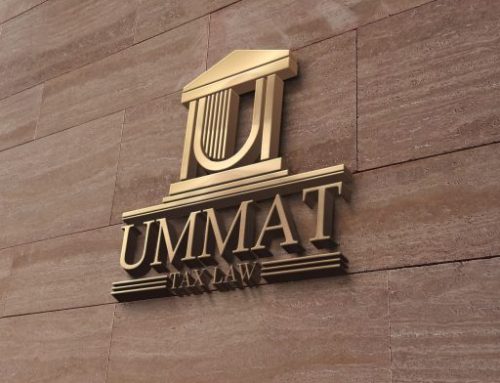FCA Allows Appeal Against a Section 160 Assessment
Eyeball Networks Inc. v. Canada 2021 FCA 17
Summary
The Tax Court of Canada (“TCC”) dismissed the Appellant’s appeal against a subsection 160(1) assessment. The Federal Court of Appeal (“FCA”) allowed the Appellant’s appeal, on the basis that neither the overall result of the series nor any of the transactions entered into in order to implement the reorganization engaged the application of subsection 160(1).
Background
This is a very interesting decision dealing with the application of susbsection160(1) of the Income Tax Act, R.S.C., 1985, c. 1 (5th Supp.) (“Act”).
The Appellant (“Newco”), a non-arm’s length affiliate (“Oldco”) and their sole shareholder (“Mr. Piche”) undertook a reorganization involving a series of transactions which resulted in the transfer of Oldco’s assets to Newco. At the TCC, Mr. Piche testified that the business purpose behind the transfer was to rehabilitate the reputation of the corporation. Specifically, Oldco was involved in online gaming, which potentially carried an unsavoury reputation. Since Mr. Piche was transitioning to a new business model – namely, video-conferencing technology – his belief was that any negative perception of Oldco could be ameliorated by the use of a new corporation.
The Transaction
The main transaction involved six steps[1]. First was the agreement between Mr. Piche and Oldco, whereby Mr. Piche sold his 11,000,000 class A common shares back to Oldco at their fair market value, with an estimated value of $30 million. In exchange, Oldco issued to Mr. Piche 11,000,000 class A voting shares and 11,000,000 class C non-voting redeemable shares, having an aggregate redemption value of $30 million, subject to a price adjustment clause.
Second was the agreement between Mr. Piche and Newco, where Mr. Piche sold to Newco his 11,000,000 class C non-voting redeemable shares of Oldco, valued at $30 million. In exchange, Newco issued to Mr. Piche 11,000,000 class A non-voting shares and 11,000,000 class B voting shares.
Third, was the agreement where Oldco sold Newco the assets of its new business, valued at $30 million. In exchange, Newco assumed Oldco liabilities equal to $175,000 and issued to Oldco 11,000,000 class C non-voting redeemable shares. Those shares possessed an aggregate redemption value of $30 million, subject to a price adjustment clause.
Fourth, Oldco redeemed its 11,000,000 class C non-voting redeemable shares held by Newco for the stated redemption amount of $30 million and issued a promissory note of $30 million to Newco (“Oldco Note”). Fifth, Newco redeemed its 11,000,000 class C non-voting redeemable shares held by Oldco for the stated redemption amount of $30 million and issued a promissory note of $30 million to Oldco (“Newco Note”).
The sixth and final step involved Oldco and Newco entering into a mutual debt cancellation agreement whereby the liabilities created by the two promissory notes were set off against each other (“set-off”).[2]
Oldco’s 2000, 2001 and 2002 taxation years were reassessed in 2003 and 2004. In 2014, Newco was assessed under subsection 160(1) on the basis that Newco did not provide adequate consideration for the property transferred to it by Oldco.
Decision & Analysis
TCC
At the TCC, The Crown argued that the transactions above were a series of transactions and that the overall result of the series was that Oldco received insufficient consideration from Newco for the transferred property, thereby triggering Newco’s liability under subsection 160(1).
The TCC identified the main issue to be whether Newco gave Oldco adequate consideration for the business assets (Step three above). The TCC concluded that the net result of the transaction steps was that Newco did in fact give Oldco insufficient consideration for the business assets. However, in the TCC’s view, the net result of the series was not contemplated by the wording of the provision. The TCC ultimately concluded that there was insufficient consideration at the set-off of step six above, because at the time of transfer the FMV of the Oldco Note held by Newco had no value in comparison to the note held by Oldco, which was backed by the actual business assets. The appeal was therefore dismissed.
FCA
The Appellant argued that the actual transfer occurred when Oldco conveyed its assets to Newco in consideration of Newco’s shares. And since a price adjustment clause was in place, there could be no difference in the value of the transferred property on one hand and the consideration on the other. The Appellant further argued that the TCC erred by concluding that the Oldco Note was valueless, since it was backed by the same assets as the Newco Note.
The Crown argued for a broader interpretation of ss. 160(1), which in its view would include the “series of transactions” analysis.
Court’s Analysis
The first step in the Court’s analysis was to determine the timing issue; namely, does the consideration given need to be determined at the time of conveyance or once the reorganization was completed? The Crown acknowledged adequate consideration when the assets were actually conveyed but argued that by the end of the reorganization Oldco was left with nothing of value.
The FCA rejected this argument, since the ‘series of transactions’ analysis only applies where one or more of the steps is tax-driven. In this case, Mr. Piche’s evidence of the bona fide business purpose was accepted by both courts, meaning that the ‘series of transactions’ argument did not apply. Thus, the FCA found that the Crown could not ignore the actual transfer that took place at step three of the reorganization. Thus, the time of transfer contemplated by the Act occurred at step three and not at the time of set-off.
The FCA went further to find that the TCC’s basis for dismissing the appeal was erroneous, since the TCC did not explain why the value of the two notes did not support each other. The Oldco note represented a bona fide debt, and the payment of a bona fide debt cannot trigger s. 160. The FCA allowed the appeal with costs.
Key Takeaways
Price Adjustment Clause
The Price Adjustment Clause was pivotal in this decision since its use eliminated any possible difference in value between the transferred assets and the consideration for those assets. To the extent not contemplated, this should of course form a part of any similar transaction.
Motive and s. 160
During the hearing of the appeal, the Crown raised for the first time the spectre of an improper motive on the part of Mr. Piche. The Crown argued that Mr. Piche intended to leave unknown liabilities unattended via the reorganization. The Court propounded that an intent to avoid the payment of outstanding taxes is not a prerequisite for the application of subsection 160(1). But an improper motive, if present, can inform the way in which the Court views the transactions and assesses their impact. This is an important factor in any dispute involving the application of subsection 160(1).
[1] Eyeball Networks Inc. v. Canada 2021 FCA 17, at para. 9.
[2] An Escrow Agreement is referenced in the Judgment but is not relevant to the ultimate underlying issue to be decided.




